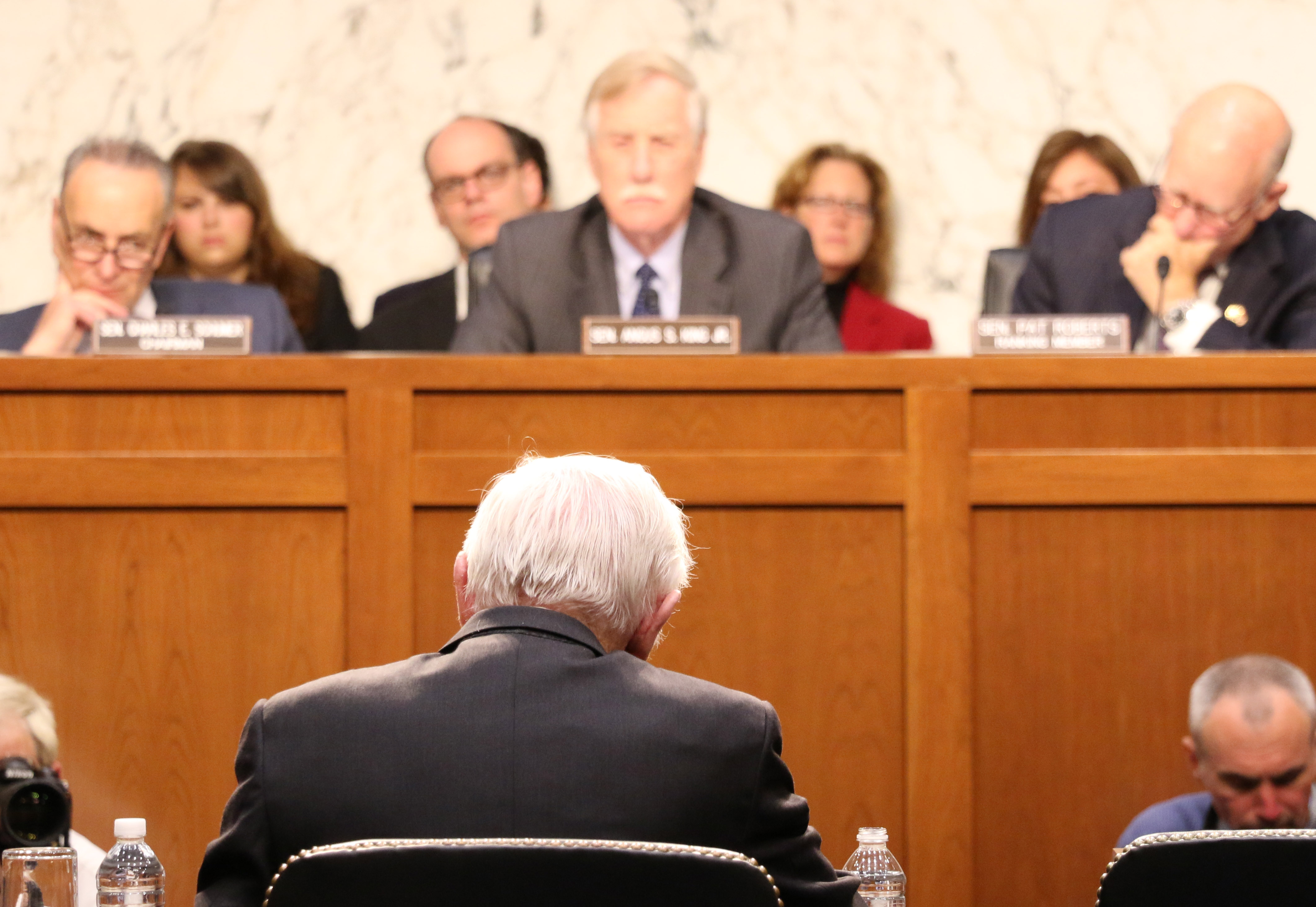WASHINGTON – It took a mortal blow to the campaign finance law to bring former Supreme Court Justice John Paul Stevens in front of a Senate committee after a 39-year absence. He hadn’t sat in front of the Senate since his confirmation in 1975, but he returned to testify in support of a constitutional amendment reinstating campaign finance limits.
“Elections are contests between rival candidates for public office,” Stevens said. “Like rules that govern athletic contests or adversary litigation, those rules should create a level playing field.”
Stevens’ proposed constitutional amendment, a version of which Sen. Tom Udall, D-N.M., has pledged to take to a vote this year, would allow Congress to impose limits on campaign donations.
The amendment would effectively overturn the Supreme Court’s decisions in Citizens United v. FEC and McCutcheon v. FEC, which struck down many limits on campaign donations. Citizens United allowed independent political groups to contribute unlimited amounts beginning in 2010, while this month’s McCutcheon decision removed aggregate donation limits for individuals, allowing donors to contribute to as many federal elections as they like.
“The court’s decision this month in McCutcheon was one more step in dismantling our campaign finance system,” Udall said. “It’s now crystal clear an amendment is necessary to allow meaningful campaign finance rules.”
Democrats contend that equating money and speech, as these high-court decisions do, has increased the political power of the rich at the expense of ordinary Americans.
New York Democrat Chuck Schumer warned that more money in politics could compromise the electoral process. “McCutcheon, carried to its logical extreme, will get rid of individual limits, will get rid of limits on corporations, and will allow money to totally, totally envelop our system. It is frightening.”
Republicans on the committee showed that they disagree fundamentally with this approach. “Campaign finance laws are always pitched as ‘let’s prevent corruption, let’s hold politicians accountable,’” said Sen. Ted Cruz, a Texas Republican. “And they do exactly the opposite.” Cruz shares the view of many Republicans – and a majority on the Supreme Court – that money is speech, making any limitations on spending a direct limit of speech.
“Money is and has always been used as a critical tool of speech,” Cruz said.
But Udall’s amendment has almost no chance of becoming a part of the Constitution, at least not in the foreseeable future.
An amendment to the Constitution requires a two-thirds vote by both houses as well as ratification by three-fourths of the states. Republicans aren’t likely to help the Democrats roll back decisions that have made major donors happy. Democrats, battling to hold their majority in the Senate, are pressing the issue to force Republicans into defending unlimited money in elections.
Sen. Cruz may have uttered the only sentence the two parties could agree on. “This is perhaps the most misunderstood issue in all of politics,” he said.

